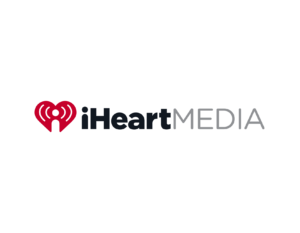Episode 105: What is the One Question You Wish You Knew Before Starting a DPC Practice?
The Paradocs Podcast with Eric Larson
Release Date: 11/12/2020
 Episode 154: Rethinking Vaccine Mandates and the Omicron Variant with Dr. Monica Gandhi
Episode 154: Rethinking Vaccine Mandates and the Omicron Variant with Dr. Monica Gandhi
The Paradocs Podcast with Eric Larson
Vaccine mandates, mask mandates, boosters, and variants have been a constant source of debate and controversy with the pandemic. My guest today is Dr. Monica Gandhi, an expert in immunology and infectious disease who runs the HIV clinic at UCSF. She has been a fairly prominent voice in support of the mask and vaccine mandates in her home state of California and city of San Francisco. She returns from her visit in June for SARS-CoV-2 in which she guessed that it wouldn't evade the vaccine or prior infection (spoiler alert: she was right). Do Vaccine Mandates Make Sense? Dr. Gandhi is...
info_outline Episode 153: Crowd Health is Go Fund Me for Health Care on Nitro with CEO Andy Schoonover
Episode 153: Crowd Health is Go Fund Me for Health Care on Nitro with CEO Andy Schoonover
The Paradocs Podcast with Eric Larson
What happens when you take Go Fund Me and put it into an ecosystem of likeminded folks who want to build a community to care for each other's health care expenses? You get which draws upon some of the concepts of crowd funding for one time health care expenses within its community. By taking people from all over the country and putting them into a community where there are expectations of caring for others, Crowd Health offers a solution to paying for health care expenses without breaking the bank. Is Crowd Health Insurance? If you've been paying attention to the US health care...
info_outline Episode 152: The COVID Drawdown
Episode 152: The COVID Drawdown
The Paradocs Podcast with Eric Larson
Today we are going to discuss the COVID drawdown. Essentially, this is what must inevitably happen for us to return to lives of normalcy where we have typical interactions with others at family gatherings, sporting events, concerts, and business meetings. Unless we are prepared to radically change the way we live our lives and choose isolation (which probably has far greater physical and mental health detriments) then we have to consider how the drawdown occurs and what conditions ned to be present for it to happen. What HaS TO HAPPEN FOR THE DRAWDOWN TO OCCUR? We've talked to...
info_outline Episode 151: Health Care for Those Who Don't Earn High Wages with Dr. David Berg
Episode 151: Health Care for Those Who Don't Earn High Wages with Dr. David Berg
The Paradocs Podcast with Eric Larson
One of the scariest times for many workers is being presented with a bill for medical services. Even if they have insurance "coverage", the deductible or co-pay might be more than they can afford. For hourly workers in entry level jobs or low skilled positions, medical bankruptcy is a real fear. While barely making ends meet an additional bill for an ER visit or doctor's office stop can send you to collections and destroy your credit. Unfortunately, a lot of Americans are in this exact spot as they earn a living working these low paying jobs but have little medical security even if...
info_outline Episode 150: Make Sure Your Health Insurance Broker is Working for You and not the Insurance Company with David Contorno.
Episode 150: Make Sure Your Health Insurance Broker is Working for You and not the Insurance Company with David Contorno.
The Paradocs Podcast with Eric Larson
When you run a business, one person you usually meet and hire is a health insurance broker. In theory, these brokers work with the employers to secure the best deals for health insurance to meet the company's health care objectives. However, in practice, the brokers serve as a sales force for the insurance companies who lavish them with bonuses, trips, and gifts. The seedy underbelly of the health insurance broker industry is that they are really not working to save money or get deals for their clients - the checks are written by the insurance carriers and that's who they answer to. Who do...
info_outline Episode 149: Is Asymptomatic Spread of SARS-CoV-2 a Thing? with Daniel Halperin, PhD
Episode 149: Is Asymptomatic Spread of SARS-CoV-2 a Thing? with Daniel Halperin, PhD
The Paradocs Podcast with Eric Larson
Not only has the COVID pandemic politicized our country - it has led to a lot of misinformation and a shutdown of communication. For instance, is there really asymptomatic spread of COVID? Or just pre-symptomatic and symptomatic spread? That might seem like splitting hairs but it can have a profound effect on policy for quarantining and testing. We've talked about this before on the show as well as general discussions on COVID policy which can be found , , and . 12 Myths and 12 Facts About COVID-19 If there is one certainty during this confusing pandemic it is that there are plenty of...
info_outline Episode 148: Urgent Care as Primary Care with Dr. Juliet Breeze of Next Level Medical
Episode 148: Urgent Care as Primary Care with Dr. Juliet Breeze of Next Level Medical
The Paradocs Podcast with Eric Larson
There are a lot of urgent care clinics all over the country. But few of them, to my knowledge, also operate as regular primary care clinics. But that is exactly what is happening today in the Houston, Texas area with the emergence of Next Level Medical. If you think about it, it makes perfect sense to leverage all the facilities needed for a primary care clinic - exam rooms, physicians, etc. and use it to deliver regular and sometimes non-urgent care. We've discussed before that lower the cost of care with transparency so this seems like the next logical step with urgent care. We...
info_outline Episode 147: Has the Pandemic Led to Infants Losing IQ? - with Sean Deoni, PhD
Episode 147: Has the Pandemic Led to Infants Losing IQ? - with Sean Deoni, PhD
The Paradocs Podcast with Eric Larson
The COVID pandemic has brought on all sorts of changes to the way we live our lives. From wearing masks, working from home, stay at home orders, and restrictions on social interactions, the virus has caused untold disruption to the way our society functions. Although the changes COVID has brought to our schools and the lives of our school age children, it is perhaps less appreciated what changes have occurred for our infants. It is a well known fact that our environment and meaningful stimulation is necessary for normal intelligence and brain development. Infants are completely...
info_outline Episode 146: Explaining COVID in 11 Minutes with Dr. Eric Larson
Episode 146: Explaining COVID in 11 Minutes with Dr. Eric Larson
The Paradocs Podcast with Eric Larson
Imagine yourself in California at a clearing in a large forest. And it’s on fire. There are three groups of people standing before you. A large group is screaming and running around pointing at the fire. They’re yelling that we need to do something, anything we can to stop the fire. Meanwhile, there is another group (not as large) with their backs to the fire. They are mocking and ridiculing the group running around panicking. They tell them to calm down and to stop ordering people around. They insist there isn’t anything wrong at all. Of course, the largest group of people are...
info_outline Episode 145: Surgery without Insurance with Dr. Keith Smith
Episode 145: Surgery without Insurance with Dr. Keith Smith
The Paradocs Podcast with Eric Larson
A lot has happened since we last met with Dr. Keith Smith from the back in 2018. . We also spoke about how the system was rigged to enrich the hospital systems, insurance carriers, and PBMs (what's new right?). So what's happened since then and how has the center done with the pandemic? Is the Surgery Center of Oklahoma Thriving or Just Surviving? Not surprisingly, Dr. Smith says that the center is doing just fine and has increased its market share from other states. Additionally, the international community from Canada is now being allowed to come back into the US for their...
info_outlineDirect primary care (DPC) is a movement that is growing quickly in the United States. Patients and physicians are looking to bypass the traditional box store medical practice and deal directly with one another. The DPC relationship is personal, small, and simple without middle men (or hospital systems). Instead of relying on copays and insurance for receiving care, patients sign up for a monthly membership with a doctor and usually get 24/7 access to a doctor. Often, the doctors provide extra value for membership by providing medications at wholesale prices, discounted laboratories and imaging studies, and unlimited visits. All of this is for an affordable price that is much, much less than the cost of an insurance plan.
But the shift to this sort of practice can be scary for a doctor. If you're newly out of training and carrying hundreds of thousands of dollars in medical school loans - can you make it? Will you find patients? What do you need to know? In order to answer some of these questions I asked nine DPC practices from around the country what is the one question you wish you knew before you started a DPC practice?
(The quotes below are actually paraphrases from our conversations both on and off air.)
Marketing
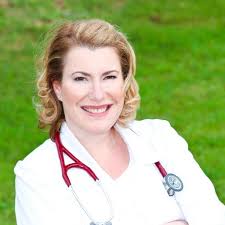
Dr. Rebekah Bernard of Gulf Coast DPC in Fort Meyers, FL says that you should watch out on what you spend for marketing.
"The advertising sales people are great at selling their products and getting you to buy to grow your practice. But I found that they weren't that helpful and the best way to grow was on my own through social media. There really isn't a need to spend a lot on advertising since the best kind is free."
Trial Memberships
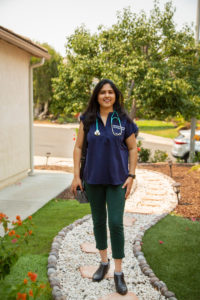
Dr. Deepti Mundkur of My Happy Doctor in San Diego, CA was surprised that a number of potential patients looked to receive free trial memberships for her medical services.
"I was surprised by people calling to see if they could get a free month trial period for my medical services. I wasn't really prepared for it and it caught me off guard. I understand how direct primary care may seem similar to a subscription service like Netflix and YouTube.
"With the medical liability and importance of good care I had to gently say that I didn't provide free medical service as an office policy. Then I explained what I offered and its value but added they could try to find that sort of service for free elsewhere in San Diego. I doubt any of them did."
Empathy and Trying to Run a Business

Dr. Matt Falkiewicz of Nova DPC in Grand Rapids, MI says the most difficult question he and his partner have faced is being empathetic to those hurting financially while still running a business and staying profitable.
"We were not ready for the problems that come from people who can't pay for care and services. There were a number of times when they didn't pay the lab fees or monthly membership that we ended up having to pay for those costs. It is still a discussion we have to have to decide whether we cover some costs or delay payment.
"We went into medicine to care for people and help them. But we also have to be mindful that it is a business and we can't always do things for free. So we are more careful by charging ahead of time for labs and the month of membership. But we still talk to each other whenever the question of need comes up to decide what to do for patients in specific circumstances."
There is No Cookbook for DPC
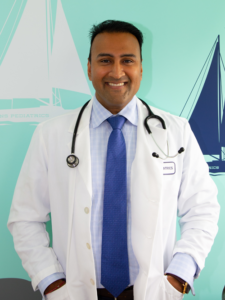
Dr. Nitin Gupta is the owner of Rivertowns Pediatrics in Westchester, NY and practices pediatrics in the metropolitan New York City area. He said the most important question he wished he knew before launching his practice was that there is no cookbook.
"I followed the all the 'rules of DPC' before starting out. I posted all my prices. I touted direct primary care as the model. But I really struggled getting off the ground. I kept having conversations with potential patients and spent a lot of time explaining to them what direct primary care was. Eventually they'd say something like, 'Oh, it's like concierge medicine.'
"I realized that I was spending too much time confusing people with the term direct primary care. So I started calling myself concierge and it changed everything. Now I was having conversations about what I could do for patients, not a payment model. I also learned that by removing the transparent pricing off my website that I had a lot more people reaching out to me and signing up. This is probably not the right thing in every area but it is in my market. You need to understand your market and adjust even if the model is the same as other DPCs."
Learn from Others
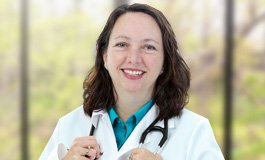
Dr. Belen Amat is the owner of DPC of West Michigan in Grand Rapids, MI (and happens to be my doctor). She says that flexibility and a willingness to learn from others would be what she wished she knew before starting.
"There are so many things that I didn't know and it turns out that most people had the answers. Whether it is to not waste money on marketing or which licenses to get, I wish I knew to find out more from those willing to help early on. Facebook groups are now a great place to find out information on what you should know.
"There is no reason to pay for a lot of that information but you have to accept what you don't know and be flexible. I tend to be stubborn and have to learn on my own the hard way but you don't need to do it that way any more. There are so many more practices out there now and doctors who are happy to help you get started. There are plenty of patients so there is no one too worried about competition."
What to Buy
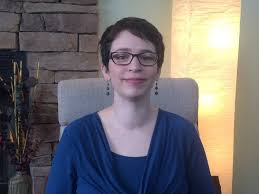 My next guest, Dr. Katie Edson, is the owner of Edson Family Practice in Christiansburg, VA and says she wishes she knew what to buy for medical supplies before starting her practice.
My next guest, Dr. Katie Edson, is the owner of Edson Family Practice in Christiansburg, VA and says she wishes she knew what to buy for medical supplies before starting her practice.
"When you're in training or working for a traditional practice the medical supplies are just there. You don't have to think about them or even know what they're called. You also have no idea what quantities or anything that you might need are.
"I realized when I started that I needed medical supplies so I purchased a lot of things for every possible medical procedure that I could imagine doing. Later, I realized that I had too much and a lot of things that I didn't need."
I Wish I knew About DPC Earlier
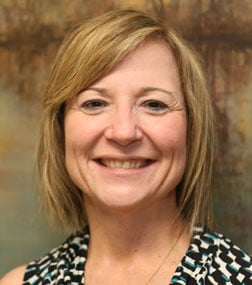
Dr. Christine Hoffman of Vanguard Family Medicine in Murfreesboro, TN had a very simple answer to the question of what she wishes she would have known before starting a DPC practice.
"I had practiced medicine for 20 years and just wish that I had known about DPC sooner. It has made medicine fun again and I've gone from a doctor ready to quit to one who loves practicing medicine again."
Buy Exactly What You Need
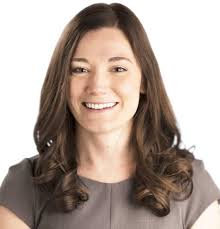
Dr. Julie MacNeil is a pediatrician and the owner of Anchorage Home Call Pediatrics in Anchorage, AK. She wishes she knew that you can order exactly what you need.
"I thought when I started that you had to buy everything in large quantities for medical supplies. I also thought that it would be difficult getting supplies living in Alaska so that the shipping rates would force me to buy in large amounts. It wasn't until later that I discovered I could buy just very tiny numbers of things like 5 syringes and needles. This has helped prevent a loss of inventory as products and medications expire.
"Even in Alaska, there are lots of options that don't cost a fortune if you take the time to look. So now I buy exactly what I need for each procedure and don't usually have to wait very long either."
Believe in Yourself and DPC

Finally, Dr. Eric Kropp of Active Choice Health Care probably has the answer to the question at the forefront of anyone thinking about starting a DPC practice.
"The question I wished I knew before starting a DPC practice was that it would work. I only wished I had confidence to have started earlier because I can now practice medicine and care for my patients the way I want.
"I was in a traditional practice for only 5 years when a senior partner suddenly passed away in his sleep. My reaction wasn't of empathy or concern but of anger and frustration as I knew I'd have to care for those patients on top of my current ones. I realized that if that's the reaction I had then I had better do something better for myself and my patients. I heard about direct primary care and thought it sounded right. Now that I am doing it I am no longer missing my kids and family and am back to being a doctor treating others with the empathy they deserve."


